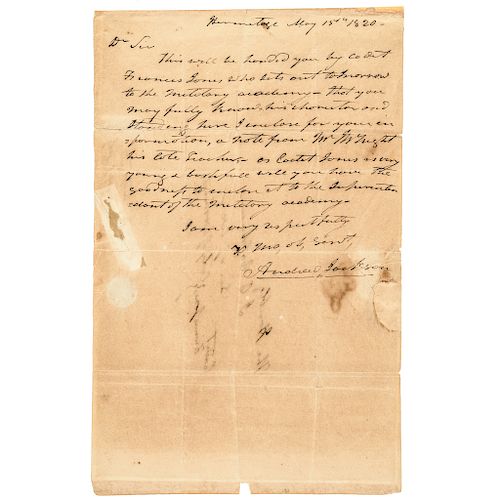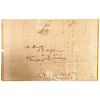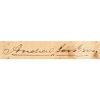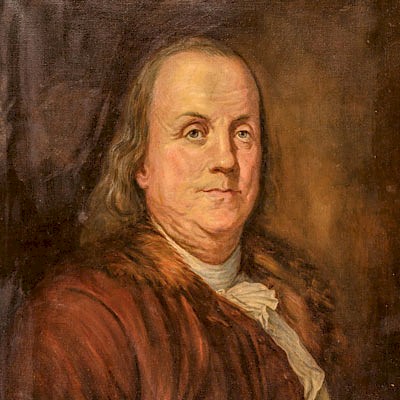1820 ANDREW JACKSON Autograph Letter Signed to John C. Calhoun, Secretary of War
Lot 51
Estimate:
$2,800 - $3,500
Absentee vs Live bid
Two ways to bid:
- Leave a max absentee bid and the platform will bid on your behalf up to your maximum bid during the live auction.
- Bid live during the auction and your bids will be submitted real-time to the auctioneer.
Bid Increments
| Price | Bid Increment |
|---|---|
| $0 | $10 |
| $200 | $20 |
| $300 | $25 |
| $500 | $50 |
| $1,000 | $100 |
| $2,000 | $200 |
| $3,000 | $250 |
| $5,000 | $500 |
| $10,000 | $1,000 |
| $20,000 | $2,000 |
| $30,000 | $2,500 |
| $50,000 | $5,000 |
| $100,000 | $10,000 |
| $200,000 | $20,000 |
| $300,000 | $25,000 |
| $500,000 | $50,000 |
About Auction
By Early American History Auctions
Aug 24, 2019
Set Reminder
2019-08-24 12:00:00
2019-08-24 12:00:00
America/New_York
Bidsquare
Bidsquare : Autographs, Colonial Currency, Political Americana, Historic Guns
https://www.bidsquare.com/auctions/early-american-history-auctions/autographs-colonial-currency-political-americana-historic-guns-4347
Historic Autographs • Colonial Currency • American Civil War Colonial Era • Revolutionary War • Political Americana • Black History Early American History Auctions auctions@earlyamerican.com
Historic Autographs • Colonial Currency • American Civil War Colonial Era • Revolutionary War • Political Americana • Black History Early American History Auctions auctions@earlyamerican.com
- Lot Description
Autographs
1820 "Andrew Jackson" Autograph Letter Signed to John C. Calhoun His Secretary of War at the City of Washington
ANDREW JACKSON (1767-1845). Seventh President of the United States (1829-1837), a Politician and Army General who defeated the Creek Indians at the Battle of Horseshoe Bend (1814), and the British at the Battle of New Orleans (1815).
May 15, 1820-Dated, Autograph Letter Signed, "Andrew Jackson", measuring 7.5" x 12", 1 page, Hermitage (TN), with Integral Transmittal Envelope, Fine. Jackson writes to Secretary of War, J. C. Calhoun under then President James Monroe, to his own future (7th U.S.) Vice-President (1829-1832), and later his great nemesis. This boldly written in rich brown ink on light tan wove period paper. Letter reads, in full;
"Hermitage - May 15th 1820 -- Dear Sir --- This will be handed you by cadet Francis Jones who sets out tomorrow to the Military academy - that you may fully know his charactor and standing here I enclose for your information, a note from Mr. McWright his late Teacher, - as Cadet Jones is very young & bashfull will you have the goodness to convey it to the Superintendent of the Military academy - - I am very respectfully - Your ob, Servt, - (Signed) Andrew Jackson".
Andrew Jackson's signature at the conclusion of this Letter measures over 3.5" long and is veru clear.
Docket on verso reads, apparently written in Calhoun's hand, in full: "Genl. Jackson - 15th May 1820". Red wax transmittal envelope seal partially intact with offset tear where opened, with early restoration to the paper with expected folds. Evidence of a closed tear that had affected the "son" of Jackson, and a small fill-in for paper loss along the right margin, not affecting text with archival reinforcement with fiber tape strips along two folds on the reverse and thin edge marginal paper reinforcement top and bottom. An outstanding example of a personal Letter of request for assisting a Military Cadet between these two historic figures of America, before they were elected as President and Vice President of the United States, and before their later bitter falling out.
John Caldwell Calhoun (March 18, 1782 - March 31, 1850) was an American statesman from the Democratic party and political theorist from South Carolina who served as the seventh vice president of the United States from 1825 to 1832.
He is remembered for strongly defending Slavery and for advancing the concept of minority rights in politics, which he did in the context of protecting the interests of the white South when it was outnumbered by Northerners. He began his political career as a nationalist, modernizer, and proponent of a strong national government and protective tariffs. In the late 1820s, his views changed radically, and he became a leading proponent of states' rights, limited government, nullification, and opposition to high tariffs-he saw Northern acceptance of these policies as a condition of the South remaining in the Union. His beliefs and warnings heavily influenced the South's secession from the Union in 1860-1861.
Calhoun began his political career with election to the House of Representatives in 1810. As a prominent leader of the war hawk faction, Calhoun strongly supported the War of 1812 to defend American honor against British infractions of American independence and neutrality during the Napoleonic Wars.
He then served as Secretary of War under President James Monroe, and in this position reorganized and modernized the War Department. Calhoun was a Candidate for the Presidency in the 1824 election. After failing to gain support, he let his name be put forth as a candidate for vice president. The Electoral College elected Calhoun for vice president by an overwhelming majority. He served under John Quincy Adams and continued under Andrew Jackson, who defeated Adams in the election of 1828.
Calhoun had a difficult relationship with Jackson primarily due to the Nullification Crisis and the Petticoat affair. In contrast with his previous nationalism, Calhoun vigorously supported South Carolina's right to nullify federal tariff legislation he believed unfairly favored the North, putting him into conflict with unionists such as Jackson.
In 1832, with only a few months remaining in his second term, he resigned as vice president and entered the Senate. He sought the Democratic nomination for the presidency in 1844, but lost to surprise nominee James K. Polk, who went on to become president. Calhoun served as Secretary of State under John Tyler from 1844 to 1845.
As Secretary of State, he supported the annexation of Texas as a means to extend the slave power, and helped settle the Oregon boundary dispute with Britain. He then returned to the Senate, where he opposed the Mexican-American War, the Wilmot Proviso, and the Compromise of 1850 before his death in 1850. Calhoun often served as a virtual party-independent who variously aligned as needed with Democrats and Whigs.
Later in life, Calhoun became known as the "cast-iron man" for his rigid defense of white Southern beliefs and practices. His concept of republicanism emphasized approval of slavery and minority rights, as particularly embodied by the Southern states. His concept of minority rights did not extend to Slaves; he owned dozens of Slaves in Fort Hill, South Carolina. Calhoun asserted that Slavery, rather than being a "necessary evil," was a "positive good," benefiting both Slaves and Slave owners.
To protect minority rights against majority rule, he called for a concurrent majority whereby the minority could sometimes block proposals that it felt infringed on their liberties. To this end, Calhoun supported states' rights and nullification, through which states could declare null and void federal laws that they viewed as unconstitutional.
Calhoun was one of the "Great Triumvirate" or the "Immortal Trio" of Congressional leaders, along with his Congressional colleagues Daniel Webster and Henry Clay. In 1957, a Senate Committee headed by Senator John F. Kennedy selected Calhoun as one of the five greatest United States Senators of all time.
- Shipping Info
-
Early American provides in-house worldwide shipping. Please contact us directly if you have questions about your specific shipping requirements.
-
- Buyer's Premium



 EUR
EUR CAD
CAD AUD
AUD GBP
GBP MXN
MXN HKD
HKD CNY
CNY MYR
MYR SEK
SEK SGD
SGD CHF
CHF THB
THB













